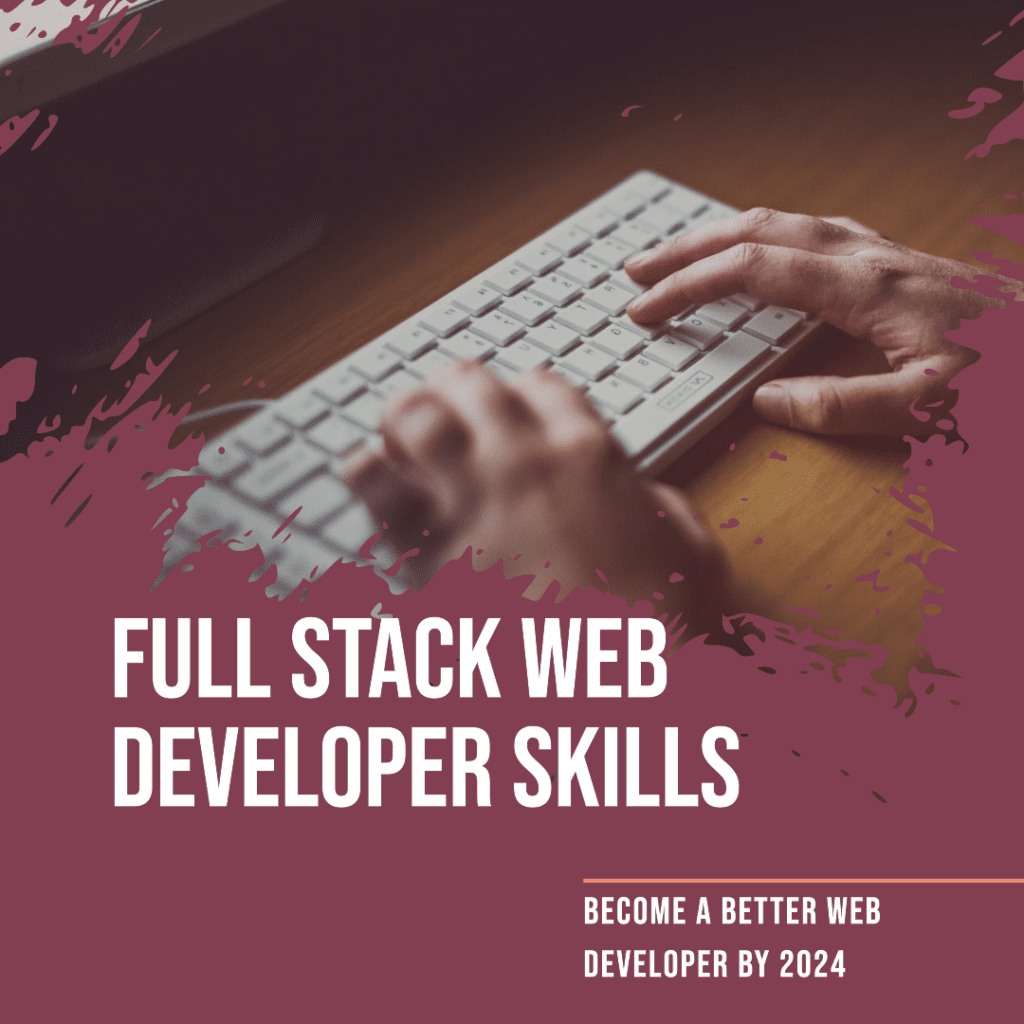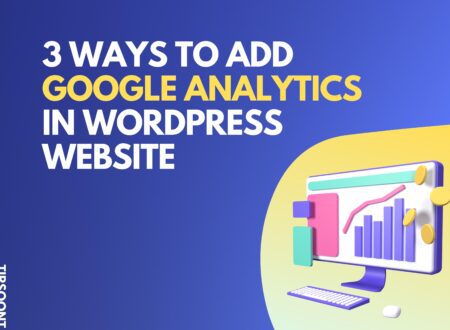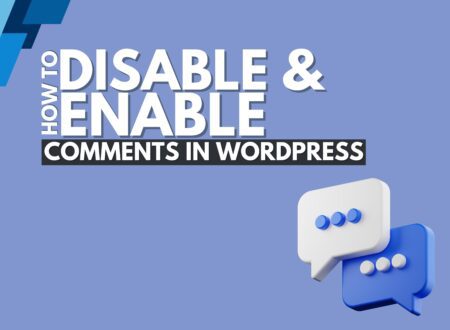In the field of web development, things are constantly changing. The global pandemic may have prompted the industry to become one of the most popular, but it’s not going away anytime soon. Due to this, we decided to compile a list of essential skills with which every web developer should be equipped.
In this simple guide, we will learn about website design skills required to be a better developer.
To succeed as a web developer, one needs a combination of technical, interpersonal, and market trends skills.
Web development includes frontend development, backend development, and full-stack development. Here we discuss what employers will look for in web development skills in 2024 and how to stay on top of industry trends.
Today’s digital age requires an in-depth understanding of web development. With the rapid development of technology, web developers are in demand more than ever. One must possess knowledge of different programming languages to become a successful web developer, such as HTML, CSS, JavaScript, Python, Java, PHP, SQL, etc.
That is why we should first understand what exactly a web developer is and what they do and then go through the web developer’s required skills. Then we can go into more detail about each web developer’s skill and explore the different roles.
Why Do You Need a Web Developer?

The process of building websites and web apps is known as web development
Website development is creating websites or applications using various markup and programming languages that users can access online.
Web development is the process of creating and maintaining websites; it’s the work that works behind the scenes to make a website appear attractive, work quickly, and provide a consistent user experience. Web developers use a range of coding languages and frameworks to do this. The tasks and platforms they use determine the choice of languages and frameworks.
Web development talents are in high demand, making it an excellent career choice. It is one of the best-paid fields.
Websites can also be developed using various web frameworks, which offer excellent performance and allow for the creation of web pages in less time.
Web Developers: Who are they?
Now, who is a web developer? Web Developers are programmers specializing in creating websites and web applications.
The task of a web developer is to develop a functional, visually appealing, and user-friendly website.
Web pages are created more efficiently with the help of various tools and frameworks. Automating repetitive tasks and ensuring code is efficient, performant, and error-free is made possible with these tools.
Testing and debugging websites are also part of a web developer’s job to ensure the functionalities work correctly and without errors. Website security is also an essential component of developing a vulnerability-free website. Understanding the topics is undoubtedly helpful since Web Application Security differs entirely from Cyber Security.
Website Design Skills for Web Developers

Web developers must stay current with the latest trends and technology because web development constantly evolves. It will be covered in this section what the top web development skills will be in 2024.
As with any newly acquired knowledge, you need to establish strong fundamentals. It will be easier for candidates with Web Development expertise to stand out from the crowd.
A Frontend Web Developer’s ability to understand HTML and to design is essential, as well as their ability to analyze data.
Here, you will learn the basic knowledge you need to become a Web developer. Moreover, if you already have experience in web development, you will learn what you need to know to become a more effective web developer.
3 Types of Web Developers: Frontend, Backend & Full-Stack

The front-end developer is responsible for the parts of a website that users can see and interact with, while the back-end developer is responsible for the code that controls how a website functions. Full-stack developers handle every aspect of development.
1- Front-End Skills
Frontend means the part in which users interact on a website. It primarily comprises
HTML / CSS
To work as a web developer, you must be familiar with HTML and CSS. The standard markup language for constructing web pages is HyperText Markup Language (HTML). Web developers widely use this language to create web pages and also generate the page’s layout, colour, fonts, and style. Both of these languages are required to work as a front-end developer.
HTML lays the foundation for creating web pages. You can use the technology to create personalized websites with unique (and advanced) features and functions. HTML5 is the most recent version for the uninitiated, and you should start learning it immediately.
On the other hand, CSS (Cascading Style Sheet) is a must-have in Web development, as we previously stated. We utilize it to give our website a unique look, including the layout and design. We also use it to ensure our website looks good on various devices and screen sizes.
Java Script
Along with HTML and CSS, JavaScript is also mentioned while discussing the World Wide Web.
Javascript is at the top of the necessary Web Developer skills and qualifications list. JavaScript is a programming language that allows you to add complicated features to a website. Knowing JavaScript will help you fulfill higher client demands when it comes to designing websites.
These abilities will enable you to construct highly interactive websites prioritizing user experience.
JavaScript is a text-based programming language that allows you to construct interactive web pages on both the client and server sides. Whereas HTML and CSS provide structure and layout to web pages, JavaScript adds interactive components that keep users engaged.
Developers can also use JS to create dynamic websites with particular features (manipulate elements, algorithmic thinking, and so on) that help build an engaging network on a digital platform. If you want to be a web developer, you can’t afford to skip JavaScript.
Git
A Web Developer can use a version control system to track, regulate, and revise code changes.
Git is an example of a code versioning technology that allows you to identify and rectify errors quickly.
The program will enable you to keep track of the changes you’ve made to the code so you can go back and review it before making further changes.
This is a must-have talent for a full-stack web developer working under tight deadlines.
2- Backend Web Dev Skills
It is just as essential to have backend web developer skills as it is to have frontend web development skills to build successful websites and web applications.
Typically, backend web development focuses on server-side programming and builds the logic, algorithms, and database management systems that power web applications. We’ll examine some critical areas for developing backends as we move forward.

Backend development languages handle web applications”’ behind-the-scenes’ functionality. The code connects the web to a database, keeps track of user connections, and runs the web application. Backend development works in collaboration with frontend development to deliver the final product to the end user.
Backend developers are generally concerned with the operation of a website. They write code that concentrates on the functionality and logic that drives the product they’re working on, and the technology they employ is never visible to consumers.
The back end comprises a mix of servers, apps, and databases.
Writing APIs, writing code to communicate with a database, creating libraries, working on business processes and data architecture, and much more are all possible responsibilities for backend programmers. It is frequently dependent on the role and company.
Object-oriented programming (OOP) and functional programming are two types of backend programming. Java,.NET and Python are popular OOP languages. SQL, F#, and R are some of the most used languages for functional programming.
JS Libraries and Frameworks
When you learn to program, you’ll discover that pieces of your code can be utilized in various applications.
There are several regularly used functions in JavaScript, for example.
So why do they have to be written from scratch every time? This is where libraries come in handy. JavaScript libraries contain completed functions that an application can use to complete a task and make programming easier.
We can use libraries in CSS that already have regularly used classes With frameworks, it is the same.
The JavaScript framework is a JavaScript application framework that allows programmers to edit functions and use them as needed. Why build something from scratch if, by all means, you can use something and adapt it to your project?
Frameworks simplify your work but give you a more standardized approach to coding. These frameworks also make it feasible for the programmer to create a device-responsive application. Some frameworks are Vue.js, React, and Angular.js.
Testing and Debugging

Debugging is finding bugs, faults, or other irregularities in your code and fixing or changing them. A software developer spends approximately 33% of his time debugging.
You may need to check your website for mistakes regularly. If any issues are discovered, you must be able to debug them. Regular testing ensures that the code is functioning correctly. As a result, becoming a successful web developer necessitates the ability to test and debug code frequently.
This is a time-consuming and complicated process but is regrettably a necessary evil. Debugging becomes more enjoyable over time because it’s like solving a puzzle; minor adjustments can make everything work.
Testing and debugging count among the top web developer technical skills. They make sure websites are error-free and operate as intended.
Testing involves running several tests on the website to ensure it satisfies the user’s needs. On the other side, debugging entails finding and correcting code flaws.
Search Engine Optimization(SEO) Skills
Many clients prefer developers who are familiar with the basics of SEO.
This is because a website with effective SEO ranks higher in search results, attracting more visitors. Because clients frequently want to increase the number of website visitors, SEO is a valuable skill to have as a web developer.
Search Engine Optimization (SEO) improves website visibility and ranking on search engine result pages. Web developers must ensure that the website is built with SEO guidelines. They must understand SEO terms like metadata, schema, indexing, etc.
Web Hosting
Web developers must understand web hosting well, as it is essential for website performance and security.
They need to understand web hosting options like shared hosting, VPS hosting, and dedicated hosting and choose the best option for their website. They must also be familiar with AWS, Google Cloud, and Digital Ocean hosting providers.
There are hundreds of website hosting providers to choose from, so the last thing you need to do is name your website after you’ve chosen one. When you choose a name for your website and want that name to be the address, you must register that name with a domain provider.
Web hosting allows you to store your resources (HTML, CSS, JS, photos, and databases) on a server and access them via the Internet.
After the web development process is completed, it must be made life so that users worldwide can access it and generate traffic. Knowing how to deploy codes is required for this. Deploying your code entails putting it in the cloud, using SaaS providers like Amazon Web Services, etc.
Here is our suggestion to choose the best web hosting for your website. Click on the Banner to get started
Aside from deployment, understanding how to transfer and scale websites is also critical. These talents come into play if your project includes moving from one host to another adding new features, or handling large amounts of traffic.
Excellent problem-solving skills and exceptional reasoning abilities are required for all web developers, regardless of job title or job description.
From addressing syntax problems and workflow loopholes to cracking a new technique to install a unique website functionality, overcoming challenges necessitates these skills. If coming up with ideas is difficult, developers should, at the very least, be aware of where to go for potential solutions.
CMS (Content Management System)
A content management system (CMS) software program manages digital information, including website content. Web developers can use CMS to generate, manage, and publish website content without having a deep understanding of technology.
As they are so commonly used in online development, familiarity with well-known CMS platforms like WordPress, Drupal, and Joomla is crucial for web developers.
Here is why WordPress is a smart choice for your websites.
Code Versioning Skills
The technique of recording code changes is known as code versioning. Good code versioning abilities are crucial for web developers as they enable them to collaborate on projects and keep track of changes made to the code. Git and SVN are two popular code versioning systems used in web development.
3- Full Stack Web Developer Skills
Full-stack developers have the skills to handle both sides. A full-stack developer is just like an all-rounder who is responsible for handling both sides of website design. They understand how the front-end and back-end work together to create a functional website.

Here are some of the things a full-stack developer might be responsible for:
- Front-end development: Using programming languages like HTML, CSS, and JavaScript to design the visual elements and user interaction of a website.
- Back-end development: Using programming languages like Python, Java, or PHP to write the server-side code that handles data processing, database interaction, and application logic.
- Database management: Setting up and managing databases to store website data.
- Building APIs: Creating APIs (application programming interfaces) that allow other applications to interact with the website.
- Testing and debugging: Identifying and fixing errors in both the front-end and back-end code.
Overall, full-stack developers are like the jacks of all trades in the web development world. They wear many hats and have a well-rounded skillset that allows them to tackle all aspects of website creation.
How to Improve Web Development Skills
Here are some suggestions for improving your web development abilities
- Practice coding
- Learn from an experienced developer
- Learn new technologies and frameworks
- Join the open-source community
- Improve soft skills
What Skills Are Needed To Be A Good Web Developer?
There are many roles in the web development scene and different technologies to work with, but overall these are the skills you will need to become a web developer.

- Keen on solving problems and building solutions
- Capable of general computer skills
- Works well in a team
- Ability to self-learn and overcome fallbacks
- Excellent communication skills
- Having a creative mindset
- The logical approach to work
- Good time management skills
- Capable of explaining technical concepts to others
- Attention to detail
- Curious and eager interest in technology
Conclusion
We hope this article provides valuable knowledge for becoming an excellent web developer. Understanding the technologies and frameworks, design skills, and analytical expertise are all critical Web Developer talents. If you haven’t mastered any outlined abilities, you still have the rest of the year to study, grow, and improve as a web developer.
You May Like
11 Best Ways to Increase Website Traffic Via Digital Marketing (2024)
Why a Website is Important for Everyone? Top 9 Reasons to Consider
Thanks for Reading, Till Next.
- Top 20 Trusted Online Earning Sites With Skill And Without Skill in 2025 - March 1, 2025
- 50% OFF on WordPress Website Design Services: Get Your Website for Just $199 - January 4, 2025
- Top 6 Web Developer Soft Skills & Hard Skills in 2024 - December 18, 2024








